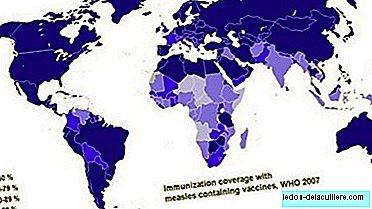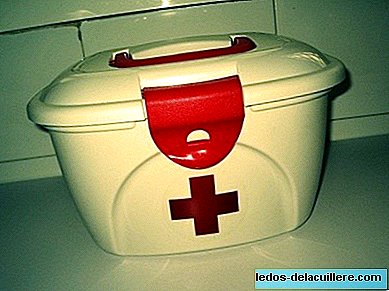
Measles is a highly infectious disease which causes the death of between 1% and 5% of children suffering from it in developing countries.
This mortality rate can be up to 25% among displaced, malnourished and poor access to health care populations. Measles can also cause serious health complications such as pneumonia, encephalitis, acute diarrhea and blindness.
The administration of the vaccine prevents measles, however it is not easy in many contexts, those in developing countries, and in others its importance is forgotten.
In recent years, developed countries have seen the number of vaccinations decrease, which translates into new outbreaks of measles when it appeared to be controlled, and in which, for example, WHO recommends vaccinating against measles before traveling to Europe .
However, and with regard to developing countries that have historically had difficulty accessing vaccination, WHO sees reasons for optimism, given that increased efforts towards immunization It has resulted in a 74% decrease in global mortality due to measles.
The greatest reductions in deaths have corresponded to the Western Mediterranean (90%) and Africa (89%) regions, whose contribution to the reduction of global measles mortality has been 16% and 63%, respectively. It is estimated that this public health achievement has prevented about 3.6 million deaths from measles in that period.
WHO and UNICEF have developed a strategy to reduce measles mortality which consists of four objectives:
Give all children a dose of the measles vaccine at nine months of age or shortly thereafter through regular health services.
Offer all children a second chance of immunization against measles, usually through mass vaccination campaigns.
Establish an effective measles surveillance system.
Improve the care provided to people with measles, including the supply of vitamin A supplements.
Thanks to this strategy, measles has been eliminated in the WHO Region of the Americas. The other three WHO regions (Europe, Western Pacific and Eastern Mediterranean) have also set regional goals regarding measles elimination.
It is hopeful that it will be fulfilled the goal of the United Nations to reduce the measles mortality rate in the world, which does not mean that, as is the situation in our environment, we must neglect and assume that the problem is overcome.












